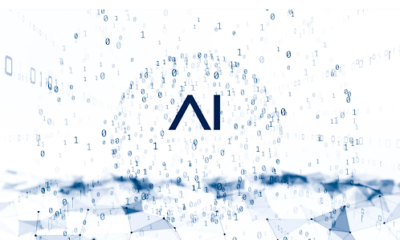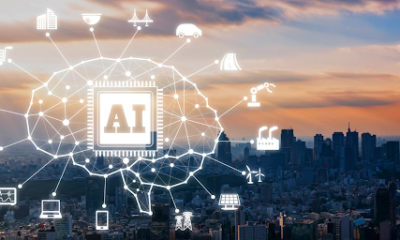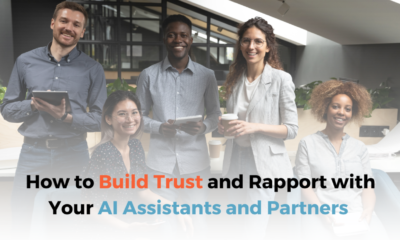Technology
AI is Now Transforming Creativity and Problem-Solving in 2024

Artificial intelligence (AI) has evolved significantly from the early 2000s when it primarily focused on basic tasks and pattern recognition, to a crucial technology in 2024 that drives innovation and solves complex problems across numerous fields. In the early 2000s, AI was just beginning to influence industries with simple machine learning models that automated basic tasks. Today, it’s a catalyst for creativity and sophisticated problem-solving in fields ranging from the arts to engineering and healthcare. AI’s trajectory mirrors the early days of computing, where initial innovations aimed for broader functionality in increasingly compact forms.
Generative AI now, a pivotal area of AI, has entered what can be described as its ‘hobbyist’ phase, akin to the early days of personal computing. Just as early computers evolved to deliver greater performance in more compact forms, generative AI in 2023 saw significant advancements. The year marked the beginning of a wave of efficient foundational models under open licenses, starting with Meta’s LlaMa family of large language models (LLMs). This trend continued with the introduction of models like StableLM, Falcon, Mistral, and Llama 2, enhancing the accessibility and utility of AI technologies.
Creative Arts and AI
OpenAI’s generative AI models, DALL-E 2 and the more recent DALL-E 3, embodied this progression. DALL-E 2 initially broke ground by generating unique images from textual descriptions, offering artists novel forms of inspiration and tools that expanded the boundaries of artistic expression. Within a short period, DALL-E 3 has built upon this foundation with several research advancements, producing images that are not only more visually appealing but also crisper, handling intricate details like text, hands, and faces with improved accuracy. This model’s enhanced responsiveness to detailed prompts and its ability to support diverse aspect ratios marks a significant evolution in the tools available to artists and designers.
AI in Education: Personalized Learning Experiences
In the realm of education, AI technologies are tailoring learning experiences to fit individual student needs. Platforms like Carnegie Learning employ AI to adapt educational content based on a student’s progress and learning preferences. This personalized approach not only enhances learning efficiency but also stimulates creative thinking by addressing students’ unique strengths and weaknesses. Such technologies are pivotal in creating more engaging and effective educational environments that cater to diverse learning styles.
AI in Engineering and Medicine
AI’s ability to analyze vast amounts of data and recognize patterns is proving invaluable in fields like engineering and medicine. In healthcare, AI systems such as IBM Watson are being used to diagnose diseases more accurately and suggest treatments that are tailored to individual patient genetics and disease history. Similarly, in engineering, AI-driven tools are being employed to design more efficient machines and systems, significantly speeding up the design process and reducing material waste.
AI in Human Growth & Development
The last example of recent innovations comes from TAIWA, an AI-driven platform designed to foster personal and organizational growth. As Dawa Tarchin Phillips, CEO of TAIWA, explains, “Generative AI can help unleash human creativity, faster and more precise analytics can help provide better matching of problems, challenges and proven solutions globally.” TAIWA aims to make growth more accessible and personalized, using AI to support individuals and organizations in overcoming barriers to their development.
Phillips further states, “AI systems integration can remove friction by helping to automate many of our most time-consuming and menial tasks.” By doing so, TAIWA not only enhances productivity but also supports continuous personal and professional development, making it a critical tool for anyone looking to thrive in a rapidly changing world.
Forging ahead deeper into 2024, the expanding role of AI in enhancing human creativity and solving intricate problems is backed up by this statistic from GitHub revealed that developers launched 65,000 public generative AI projects on its platform in 2023—an increase of almost 250 percent over the previous year. Signaling a widespread embracement of AI technologies, highlighting even more the urgency for organizations to adopt and innovate with AI or risk obsolescence, much like the fate that befell Blockbuster in the face of digital streaming innovations.

































